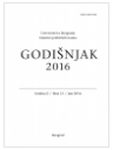
We kindly inform you that, as long as the subject affiliation of our 300.000+ articles is in progress, you might get unsufficient or no results on your third level or second level search. In this case, please broaden your search criteria.

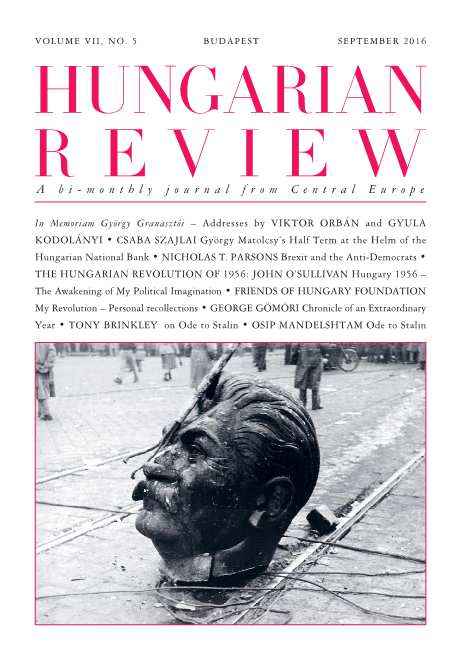
This research paper maintains the notion the “Rise of China” at its core, while attempting to theoreti-cally conceptualize its implications toward the current world order. It has also put a strong emphasis on the various relevant elements, which have mainly shaped the behavior of China in the global arena in various time periods. The theoretical framework used in this paper has been largely based on the school of thought of “Political Realism“, where questions such as “Is China a status quo or revisionist power?” and “Is China’s Economic interdependence with other countries and the attitude of China neighbors reason enough to permit its peaceful rise?” have been analyzed accordingly following the guidelines and principles of that specific school of thought. Lastly, this paper proposes that China’s rise cannot be peaceful unless the world leadership will facilitate its further incorporation in the international system and perceives China as part of the solu-tion instead of the problem.
More...
During the '90-ies the wars in the former territories of what was called Yugoslavia marked the end of a century plenty of wars and local armed conflicts. More than 140 million people died because of wars in the XX century. The war of Kosova was the last one in that century. The beginning of the XXI century stressed the necessity for a new way of thinking nationally, regionally and globally. The Balkans were often considered as a gun powder territory. All the Balkans states, someone more and someone less, have problems with each other. History was and remained very passionate within the Balkan countries. The case of Kosova is possibly the most sensitive in all this framework. After the proclamation of independence on February 17 2008, the concerns were high within the region and a new question was questioned: would the map of the Balkan peninsula change again to form another "Kosovo"? This article would give some details about the geopolitical situation in the Balkans focusing on Kosova and would try to establish e new way of making politics and diplomacy though deterrence and not offence. We will try to overpass history but without neglecting it, but by learning from its mistakes in order to bring a better Peace-Building aspect for the Balkan region.
More...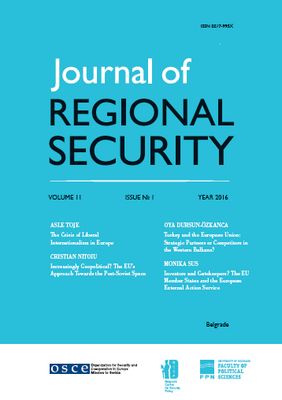

Throughout the past decade the policy of the European Union (EU) towards its eastern neighbours has avoided focusing on security issues. However, the Ukraine crisis had had a deep impact on the EU’s foreign policy and its approach towards post-Soviet space. It has highlighted that the EU’s eastern neighbourhood is characterised by intense geopolitical competition with Russia. The crisis also underscored the weakness of the EU’s low politics approach towards the post-Soviet space and Russia. On the other hand, Russia’s actions in Ukraine have made the member states more willing to act together and recognise Russia as a security threat. In this context, the article argues that while the EU has not always viewed its relations with Russia and the post-Soviet space in traditional geopolitical terms, the shape of the regional geopolitical structure has always influenced its policy towards the region. Moreover, the article shows how the EU has gradually embraced geopolitical competition for influence in the post-Soviet space with Russia and even confrontation with Moscow.
More...
This project reflects on the ambivalence of the EU member states in their relationships with the new institutional arm of European diplomacy – the European External Action Service, headed by the High Representative. While trapped in rhetorical support for stronger and better-coordinated EU foreign policy, the member states show little willingness to equip the newcomer with political mandate and room for action, and provide a case in point for the post- Maastricht integration paradox. The main aim of this paper is to shed light on the reasons for this paradoxical behaviour. Taking into consideration the timeline 2009−2014, the article looks at patterns and dynamics of the mutual cooperation between the EEAS selected member states (Germany, Poland and the United Kingdom).
More...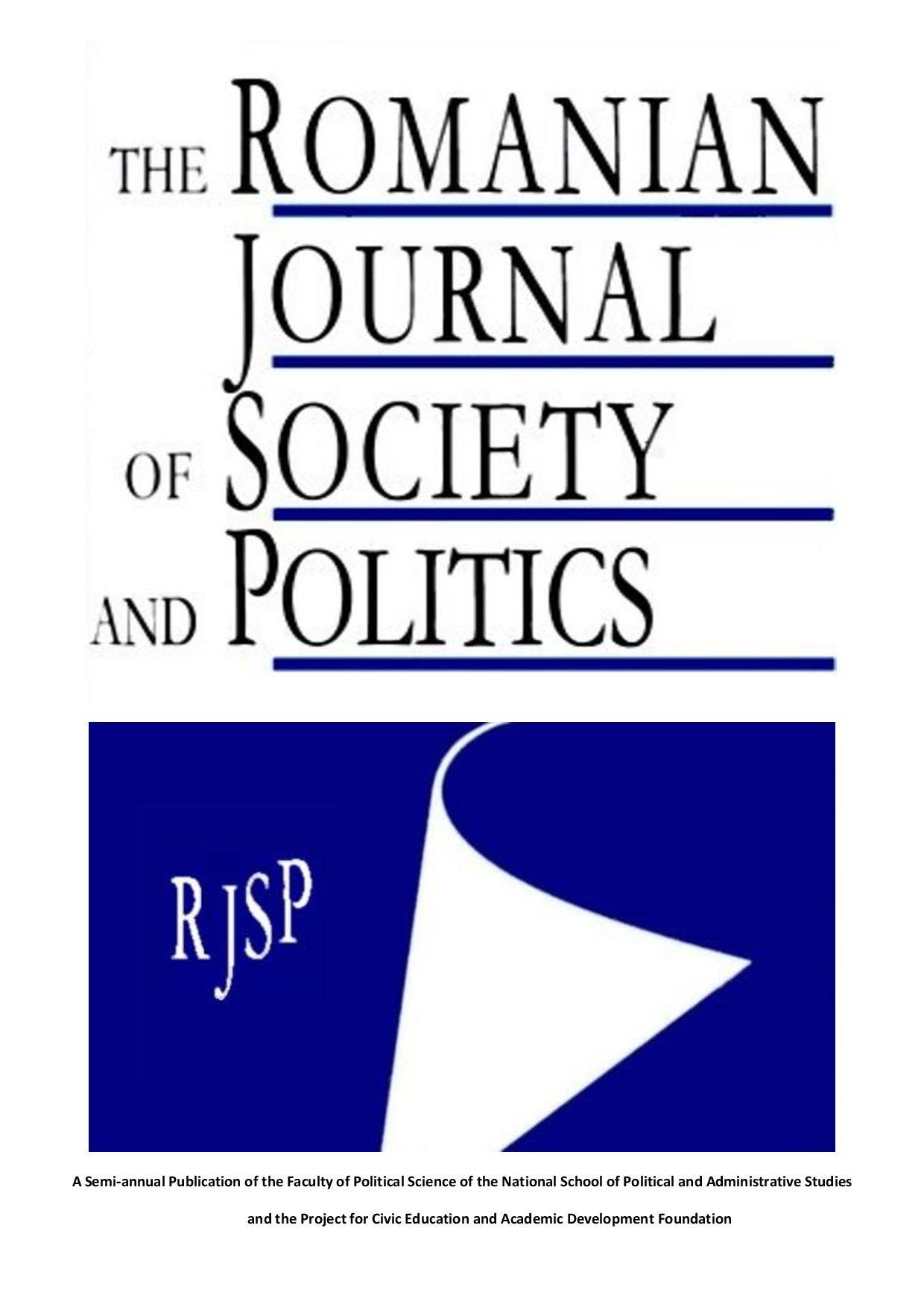

The article deals with the approaches to understanding the concept of‘competition’. There are three approaches to understanding the concept: as a competition in the market, as a behavioral element of the market mechanism and as a market mechanism criterion to resist monopolization. Conditions for the existence of competition are also considered. The first condition for the competition to emerge is a presence of a great number of items of any particular product or resource in the market. The second condition for the emergence of competition is freedom of choice of producers’ economic activities. The third condition for the competition to emerge is correspondence between what determines the demand and what determines the supply. The forth condition for the emergence of competition is the presence of the market of means of production. The essence of the competition in the political field is analyzed as well. Specific conditions for the political competition in modern Russia are distinguished and common features of the political competition in subjects of the Russian Federation are also determined. An example of the conditions and essence of the political competition in Yaroslavl is considered in detail. Changes of the area of political competition for the last four years of the Russian Federation are also considered.
More...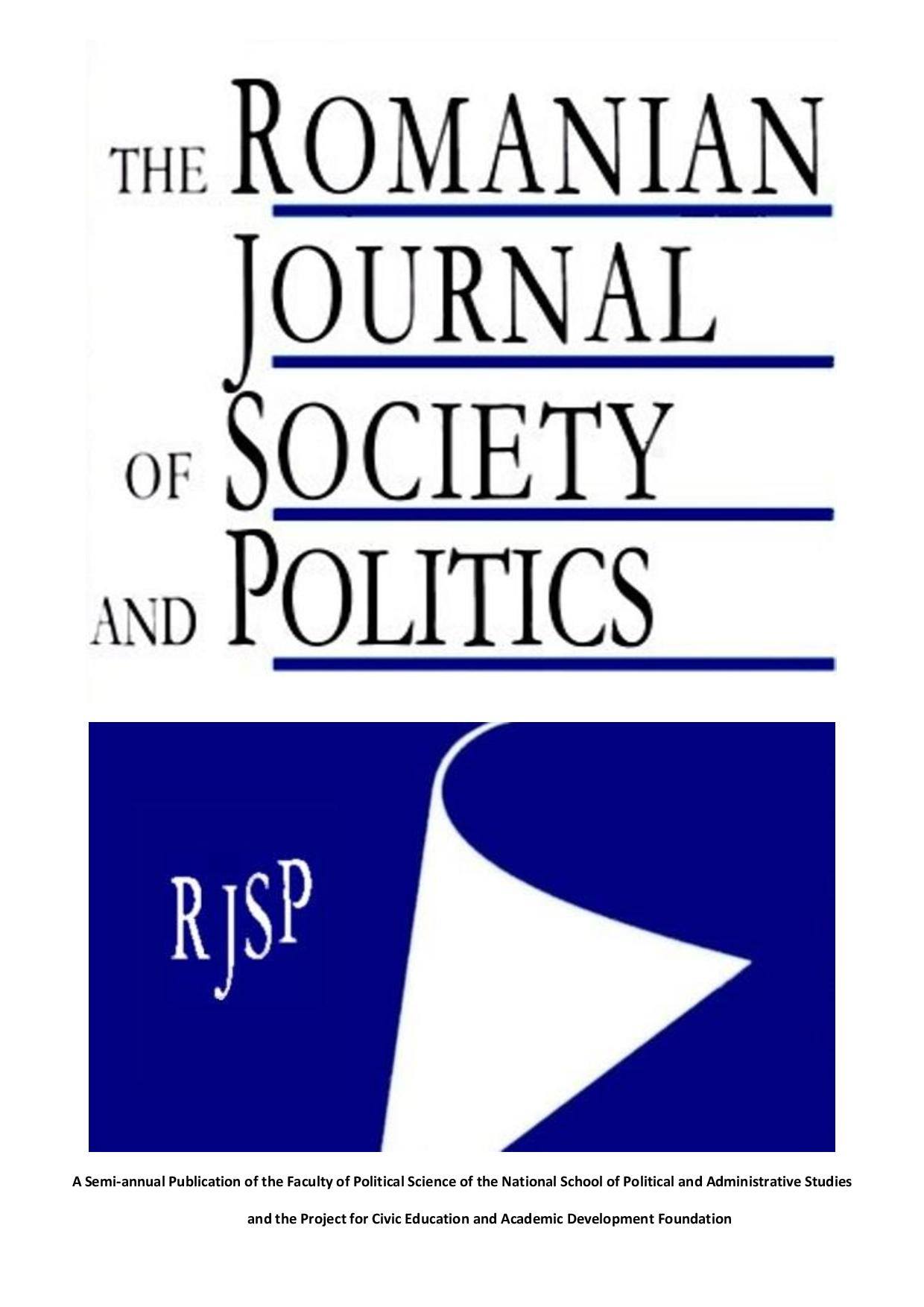
Neoconservative political ideology has influenced U.S. foreign and defense policy in various ways. During President G. W. Bush‘s first administration, addressed here, neoconservatives embedded in the Administration exercised a key influence on the President and his foreign policy decisions. Since the President is the key foreign and defense policy decision maker in the U.S.A., the influence of the neoconservatives in this field was very significant. To support the main thesis of the paper, an analysis of the content of neoconservative policy papers was made, and statements representing policy goals of neoconservatives were identified. It was concluded that the foreign and defense policy of the Bush administration was influenced by neoconservative political ideology, but the neoconservatives and hard-line realists who actively participated in decision-making processes diverged significantly from the political philosophy and advice of the‗original‘ neoconservatives. They used elements of neoconservative ideology, considered useful for implication of their policy, particularly towards the Middle East and especially towards Iraq. Therefore, the practical (geo)political reasoning of the decision-makers within the Administration clouded the declared theoretical base of their policy as well as the neoconservative values they claimed to support.
More...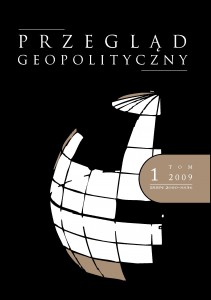
The special role in development of Russian geopolicy determines prominent Russian geographer's works, Wienamin Siemionow Tien-Szanski (1870-1942), whose publications contain many precious conceptions and historical generalizations. The Russian geographer considered that exist relationships between wider historical generalizations and geographical. That is why one shold to look for formula, which can perceive variety aspects of influence goegraphical factors on general history and political processes on global space. Analysing word history, he seperated on ground surface teh "critical" area, between equator and forty-fifth northern degree parallel, where are placed three, great oceanic gulfs: Inland European Sea together with Black Sea, China Sea (South and Estern) together with Japanese Sea as well as Caribbean Sea with Mexican gulfs.
More...
Robert Kaplan is the one from the most famous on whole world american analysts of international relations. He links the experience 25 years of trip throught deepest corner of world and work as the columnist also as war's correspondent. He advised many time american administration -therefore he connct in his thought practise and theory. The certain author's main is period of hesitancy (tuebulency), fears, and also threats which came after cold war- and these disorders of international order can cause the anarchsation of its in the future- which already could notice. International order is full of disarrays, in which safety is only fragile and faint moment, wchich one should fight it to share it for longer time.
More...
Present terrorostic organizations base its activity for more often on Leaderless Resistance. It in this strategy does not exist disposable organizational central and organisational section are loose connected system with full autonomy, in rage of planning and so exexuting. Such structure assures the terroristic web large elasticity and resistance from state blow. In proposal version by Beam, organizational system is based on cellular structure, but there is no central control or management: all individuals and sections operate seperatley between one's, and never answer to head office or individual leader for instructions or orders. The web as organizational structure is elastic, adapts easily to chances in surrounding. Thanks to it is resistant on blows. The central point base on distant structure decentralization, in this way, that manifests not only in independent sections but also in their specialisation.
More...
The article is a draft describe of development of Polish theoretical geopolitics from 19th century to 2009. Author commence the series of concepts form Eugeniusz Romer and idea of Intermarium to ideas of European integration in the beginning of 21st century. In the end author concludes that geopolitics as a study has an interesting perspective of development. The main areas of geopolitical researching will be theory and methodology, cartography, modeling and predicting geopolitical processes.
More...
The study provides a summary of the most crucial conceptualisations regarding border studies. The aim is to introduce main concepts and categories employed by scholars in the field of border studies. Conceptualization of border studies point out that the issue of borders offer full range of possibilities for research.
More...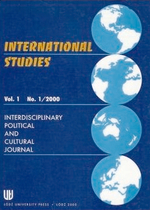
The German problem dominated among the priorities of the Polish diplomacy after 1960. The stalemate was broken by the visit of the Prime Minister Józef Cyrankiewicz in Vienna in September 1965. Józef Cyrankiewicz’s visit in Austria highlighted new possibilities in Austrian-Polish relations. The old policy of Minister Adam Rapacki had been conceived in a difficult period and had no impact on the international environment. The article aims to characterises of the conditions for developing Polish-Austrian relations in the late 60s. The articles poses several questions: how far policy towards Germany stimulated relations with Austria and how Polish authorities saw the possibilities of economic cooperation with Vienna and finally how they prepared for this cooperation. The difficult economic situation in Poland required resuming cooperation with the West. The meeting in Vienna developed further bilateral relations in a very positive way. The Minister Bruno Kreisky recognized in the Polish government both a partner and a neighbour to cooperate. Cyrankiewicz’s visit launched the ratification processes of many bilateral agreements which developed trade in the Eastern Europe.
More...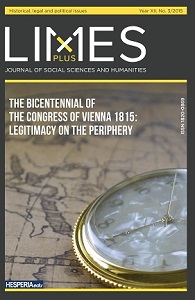
The Habsburg presence in the Eastern Adriatic imposed a new geopolitical paradigm, the one opposed to the previous Venetian and French imperial models. Vienna court made effort to make distinct Dalmatian identity and enable as efficient control from Vienna as possible in order to prevent unionistic wishes of Pest or Zagreb. Roman heritage, with Diocletian’s Palace as one of the most significant monuments, was important basis for creation of identity of Dalmatia. The visit of imperial couple, Franz and Carolina, was marked by admiration of classic heritage of Dalmatia. Vienna created a myth that connected the emperor with things Roman and Christian in a new branding of the province that was based upon two important pillars: Christianity in the Roman times and classicism that achieved modern fulfillment through important state architectural undertakings during 19th century. The “creation” of Dalmatia involved most famous Dalmatian saints, whose Dalmatian character and specificity were specially highlighted. The period after Vienna congress was very important for Dalmatia for Vienna policy towards it did not change significantly until the end of the Empire.
More...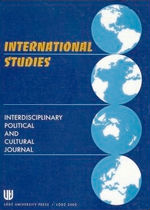
The article highlights the major points that have influenced relations between Russia and Estonia after 2007. These relations were rather poor during the post-Soviet period. The number of Russian people who lived in Estonia after gaining independence in 1991 exceeded 30%, which resulted in the very keen interest of Russia in Estonian politics. April 2007 created a new reality for relations between the countries. The decision to move the statues of Second World War Soviet soldiers from main squares to cemeteries provoked negative reactions from Russians living in Estonia, but also infuriated leaders of the Russian government. As a consequence there were harsh verbal attacks from Moscow, the Estonian ambassador to Moscow was harassed, cyberspace attacks took place and traffic over the bridge in Narva, which is a key highway from Russia,was blocked. The Estonian authorities know there is no point in maintaining conflict with Russia. The President of Estonia, Toomas Hendrik Ilves, has stressed that Estonia’s relationship with its biggest neighbour, Russia, can only get better. Russia plays an incredibly important role in the Estonian economy and tourist industry, according to Andrus Ansip, the Prime Minister of Estonia.
More...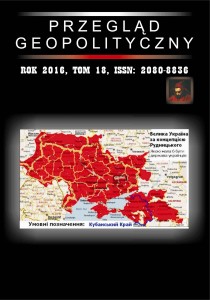
The accession to EU in 2004 has initiated the unprecedented in the Polish newest history mass emigration to the Western Europe – far beyond 2 millions of our countrymen reside temporary out of our state borders. Growing tendency is permanent, emigrants do not want return to the homeland. At the same time the total fertility rate in Poland decreased dramatically in comparison to the beginning of the economic transition period (beginning of the nineties). These demographic tendencies represent a serious threat for the future of Poland. Official forecasts suggest that in the year 2050 the population in Poland will decrease to the level between 32 and 36 million of people and its age structure will be highly unfavorable. And now, since the year 2014, we witness the unexpected new migration trend on the Ukraine-Poland direction. The estimates point that today about 1 million Ukrainians reside legally or illegally on the Polish territory and their number raises. The author tries to indicate some significant statistics in order to provide necessary data for further considerations on the issue.
More...
In the beginning of 21st century, after one hundred years since the invention of the term by Rudolf Kjellen, geopolitics is currently used in many publications and has its own “renaissance”. But some of modern researchers have an objection about scientific status of geopolitics. They accuse definitional chaos, political darwinism, geographical determinism, relationships with Nazism, split to classical and postmodern geopolitics, many various doctrines and a lack of methodology to present geopolitical studies. It is like an attempt to build a modern type of biblical Babel Tower. The article is a trial to search a basement for scientific status of geopolitics. We can determine a short definition of geopolitics (as a “global politics”) based on Aristotle’s classification (first section), to explain a parallel evolution of geopolitics and globalization (second section), to determine geopolitical relationships with geostrategy and geoeconomy (“geopolitical triade”, third section) and finally place geopolitics in the modern classification of science and take an outline to geopolitical methodology (fourth section). Geopolitics is still growing and it may be one of basic sciences in 21st century. „Geopolitical Babel Tower” is to be replaced by „Geopolitical Triada” with a solid methodological foundation.
More...